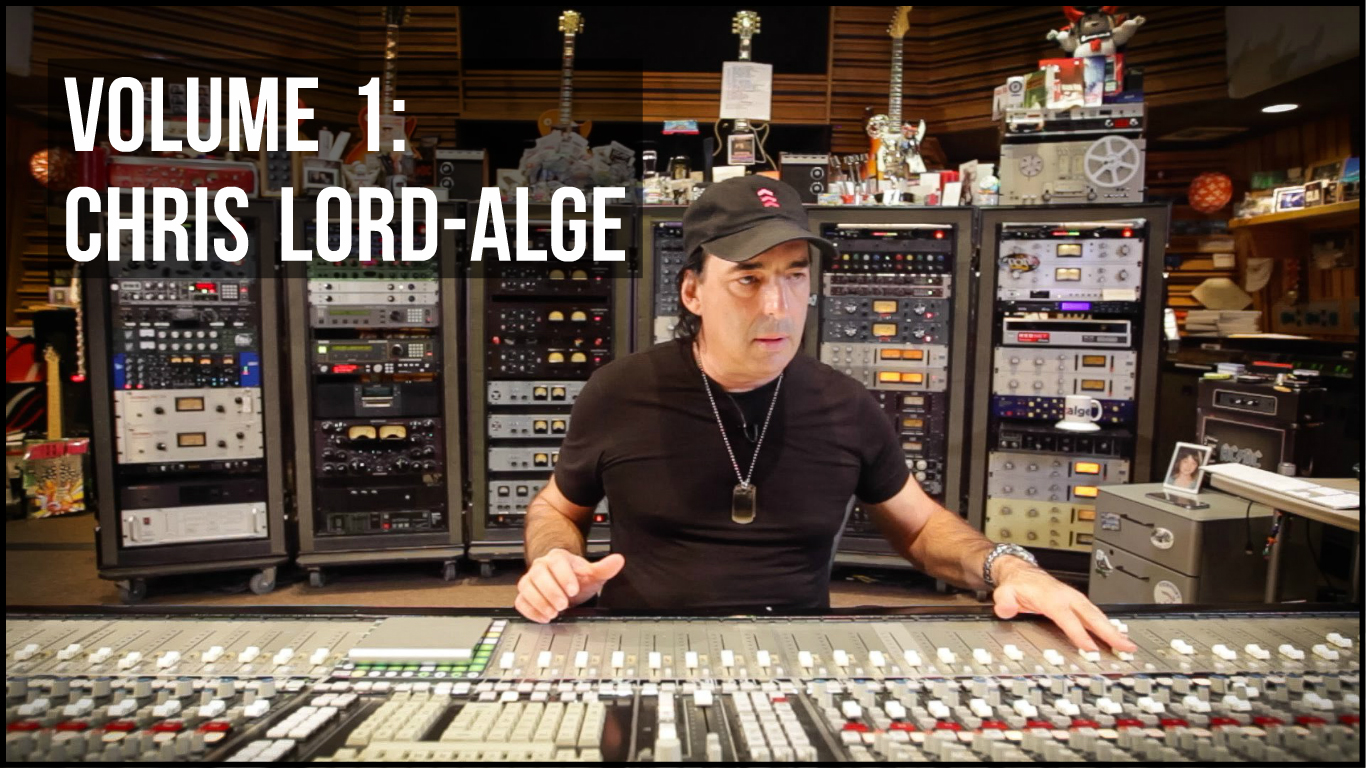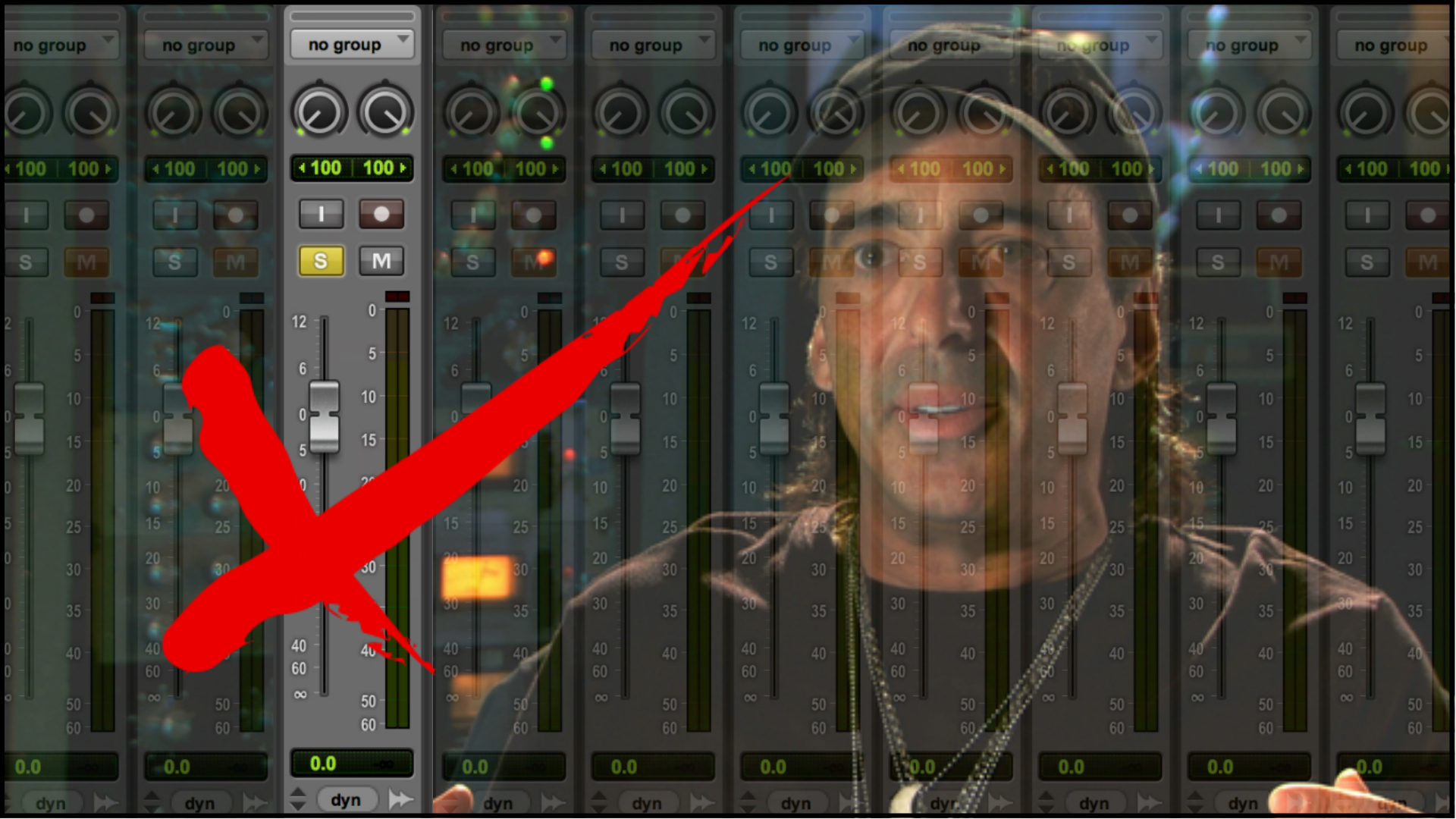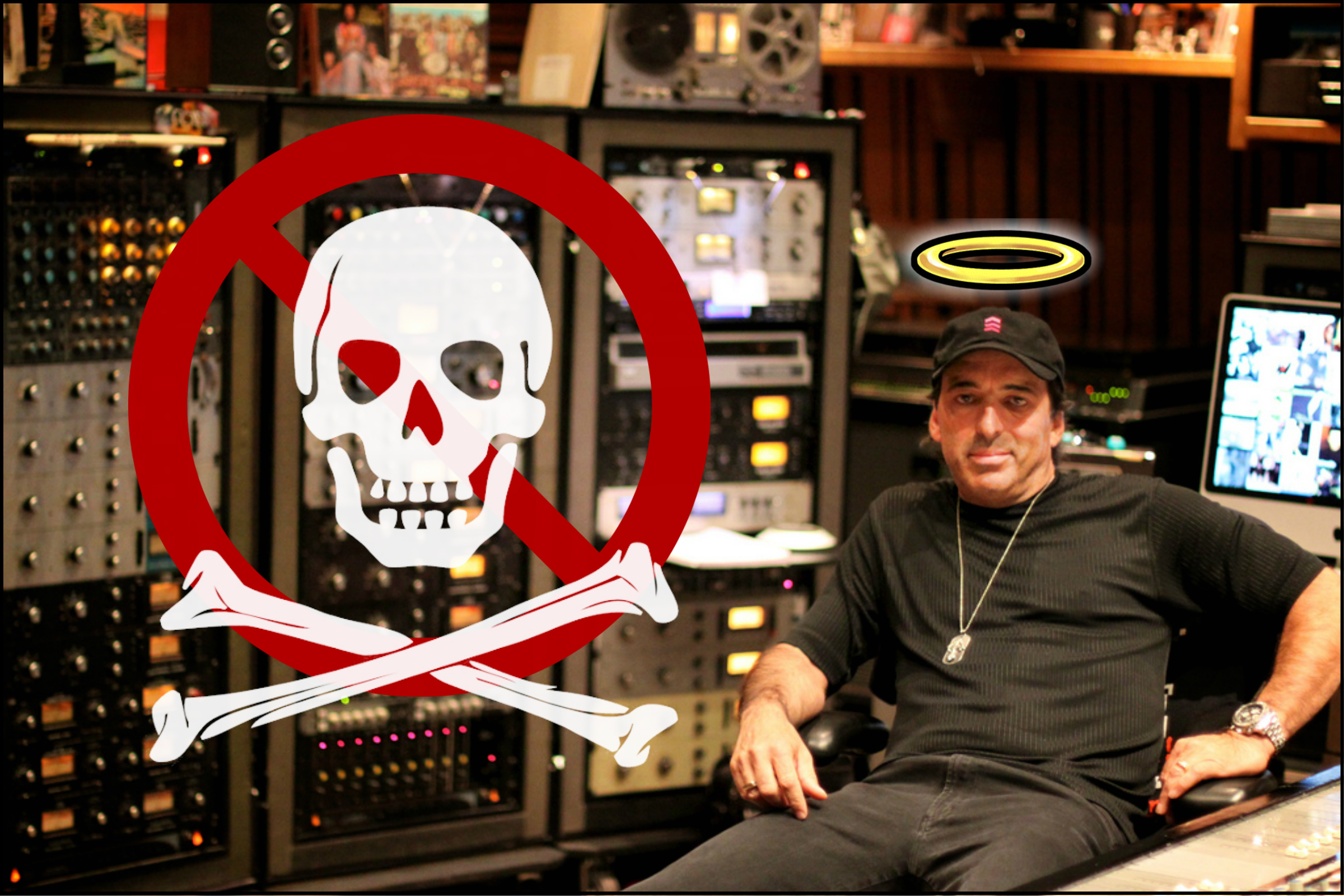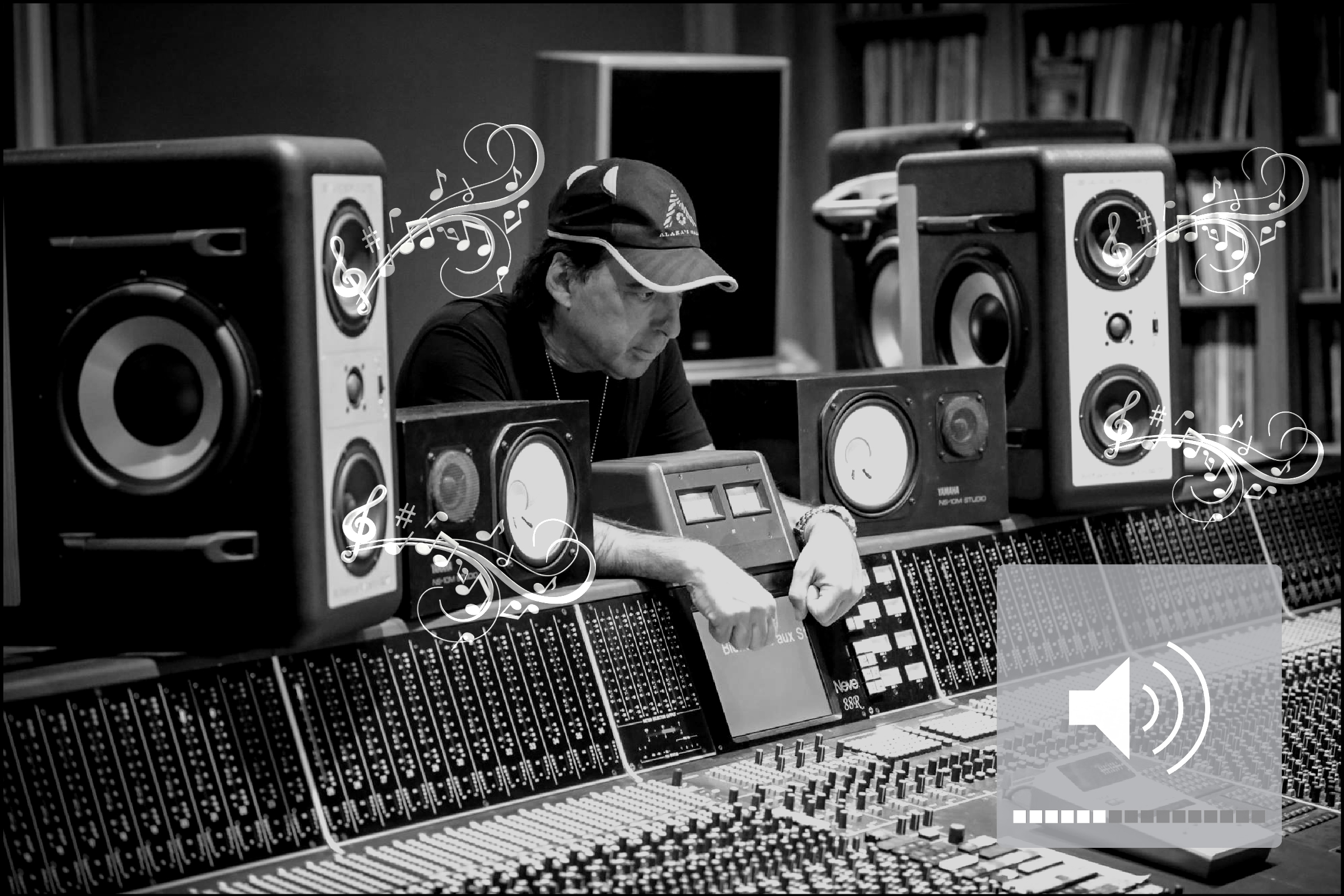| By Thomas Brett |
Introduction To The Series:
Learning How To Learn is one of the most crucial steps you can take towards becoming great at pretty much anything – And what better place to learn than from the minds of people who have actually been doing the job successfully for years?
In this ongoing series of Blogs, we’ll explore the valuable words of wisdom bestowed upon us by some of the most sought after names in the recording studio business, and discover how you can apply this advice to your own situation.
This week, we’re delving into the mind of probably the most recognisable name in the world of audio: Chris Lord-Alge.
NOTE: If you’re hoping to find some “secret mix settings” or “magic formulas” in this article then you might as well leave now… I can guarantee you that the real secrets behind each of these engineers’ success are their ears and personal tastes.
Remember:
Following the practical “workflow and decision-making” advice these guys have to offer from years of experience in the business is far more valuable than trying to copy the settings they’ve used for specific songs!
VOLUME 1: CHRIS LORD-ALGE

Who Is CLA?
Chris Lord-Alge is a multiple Grammy Award-winning mixer and producer. He is responsible for some of the biggest and best-selling albums in music history.
Some of the artists he’s worked with include:
Green Day
My Chemical Romance
Nickelback
Muse
Keith Urban
Shinedown
AND LITERALLY HUNDREDS MORE…
Long story short: If you’ve turned on the radio at any point in the last few decades, then there’s a good chance you’ve heard one of his mixes…
CLA is well known for the high-speed at which he likes to work and his love-it or hate-it “win-win” attitude. Given the enormous number of achievements under his belt, there are few better people to heed the advice of when it comes to “making it” in the world of Audio.
Now that you know exactly who you’re dealing with, let’s cut straight to the chase:
Here Are 5 Pieces of Audio Advice From Chris Lord-Alge:
1 – Stop Mixing In Solo!
 “Nobody will ever hear anything in solo. PERIOD. So the only way to get a great vocal sound is when it’s competing with everything else in the mix.” – CLA
“Nobody will ever hear anything in solo. PERIOD. So the only way to get a great vocal sound is when it’s competing with everything else in the mix.” – CLA
Here’s why you should stop relying on the solo buttons in your DAW:
- A common mistake new engineers tend to make is spending way too long working on individual instruments out of context from the full mix.
- Sure, it’s easier to focus in on specific problem areas when listening in solo… But how can you expect to build a mix that serves as a tight and cohesive unit if you don’t know how each of the pieces are meant to fit together?
- It’s important to remember that everything in mixing is RELATIVE. What may sound like a bright and clear vocal in isolation will probably sound lifeless and muffled the moment you add in other bright elements like distorted guitars and cymbals…
NOTE: This doesn’t mean that you should disregard the solo button entirely, as listening in isolation for short periods of time to fix problems is perfectly OK. CLA’s main point is that you should refrain from making drastic tonal decisions independently from the big picture.
2 – It’s Not About The Gear…
 “Most mixers spend way too much time messing around with equipment… It’s not about the plugin; it’s about the power of the song! Everyone knows how the equipment works. You can’t afford to get lost in creating a cool sound that will never matter.” – CLA
“Most mixers spend way too much time messing around with equipment… It’s not about the plugin; it’s about the power of the song! Everyone knows how the equipment works. You can’t afford to get lost in creating a cool sound that will never matter.” – CLA
Excuses, excuses…
- CLA may be known for his use of an expensive SSL desk and hoards of vintage analog gear… But it’s not the tools he uses that makes for his instantly recognisable sound.
- We love to drool over the gear our mixing idols have and use them as excuses for why our own mixes don’t sound as good. The truth is, guys like Chris can produce an incredible mix with whichever tools you put in front of them! As the classic saying goes: “It’s the ear, not the gear”.
- The average music listener doesn’t really care about the gear you used. They’ll most likely take a good song with a poor mix over a terrible song with a good mix any day of the week.
- It’s time to stop obsessing over which of your dozen 1176 plugins is “the most accurate to the original” and just get on with making some actual music!
3 – Commit To Your Sounds!
 “Anybody can plug a mic in, turn up some level and record it to a track without screwing anything up… A pro goes: ‘Hey, I’ve got a cool mic and some cool EQ, I’m gonna build something into the sound and create something with a vibe.’ – Try and make the rough mix the final!” – CLA
“Anybody can plug a mic in, turn up some level and record it to a track without screwing anything up… A pro goes: ‘Hey, I’ve got a cool mic and some cool EQ, I’m gonna build something into the sound and create something with a vibe.’ – Try and make the rough mix the final!” – CLA
“Never second guess yourself. Go with your gut instinct. Make it so you like it, because if you like it, they’ll like it! Don’t compromise. Obviously, you need to make the client happy, but you have to make yourself happy first.” – CLA
Learn to trust yourself and move on:
- Leaving multiple open-ended decisions for “future you” to deal with is a surefire way of slowing down your workflow and preventing you from getting things done.
- Answer this question honestly: If you were unable to pull off “the perfect guitar tone” on the day of recording, then do you really think you’ll manage to pull it off only a day later in re-amping?
- A far better approach is to do the best job you can in the moment, commit to the sound, move on, and try to improve your source sounds with each new project you work on.
- There’s no substitute for making mistakes and learning from said mistakes. If you go for years without ever finishing anything because you’re afraid of screwing up, then you’ll cheat yourself out of formative years which could be spent crafting a portfolio to build upon!
4 – Turn It Down
 “I listen really quietly. When you’ve been doing this job for a while, you tend to listen at such a low volume that in order for it to hit you in the face, you have to really push it. Listening at low volumes prevents fatigue and you can hear better what’s going on. When you turn things up, after a while all your moves become a smear. So when you’re doing really critical moves, do them at a low level.” – CLA
“I listen really quietly. When you’ve been doing this job for a while, you tend to listen at such a low volume that in order for it to hit you in the face, you have to really push it. Listening at low volumes prevents fatigue and you can hear better what’s going on. When you turn things up, after a while all your moves become a smear. So when you’re doing really critical moves, do them at a low level.” – CLA
Here’s why you should heed CLA’s advice and turn it down a notch or two:
- Everything sounds good when it’s being blasted at full-whack… The real trick to building a mix that translates well and maintains the same level of impact across multiple systems is to make sure it’s hitting hard at lower volumes.
- Alongside these sonic benefits, listening quietly will also allow for longer mixing hours each day and help preserve your ears in the long run. This is absolutely essential if you’re after a long-lasting & HEALTHY career in audio.
5 – CONCLUSION: You Have To Be Competitive
 “Either you dedicate your life to doing what we do, or you don’t do it! You could do it comfortably… But if you do it in a way that’s nice and “kush” and easy, then don’t complain!” – CLA
“Either you dedicate your life to doing what we do, or you don’t do it! You could do it comfortably… But if you do it in a way that’s nice and “kush” and easy, then don’t complain!” – CLA
#NOSMALLTIME:
- You don’t reach the level of success and employability guys like CLA have achieved by being SMALLTIME. (As Joel Wanasek would put it)
- It takes a huge amount of dedication, research, experimentation, personal sacrifice and an equal amount of failure to make it in this business. You can’t expect opportunities to just fall straight into your arms if you’re not willing to put in the hours necessary to overtake the competition…
- As can be seen in the case of CLA, if you truly want something bad enough then you’ll do whatever it takes to get it… No matter how many years of late nights and trudging through learning curves it takes!
Check out these resources for further insight into CLA’s techniques:
Sound on Sound – Secrets of the Mix Engineers: Chris Lord-Alge
Final Words:
This concludes “Learn From The Legends – Volume 1: Chris Lord-Alge.” I hope that this article has given you some new ideas to try out during your next project. Be sure to comment below if any of this information has helped you out, or if you have any questions.
Stay tuned for more production/mixing related articles in the not-so-distant future!
Thomas Brett is a producer, mixing engineer and songwriter at Brett Brothers recording studio in the UK. Check out the Brett Brothers studio website for more information and articles on all things mixing www.brettbrothersstudio.com
Want mix tips from Thomas Brett? Read them here!
 Nail The Mix is our online mixing school that gives you REAL multi-tracks from REAL bands, plus a mixing class from the producer who recorded it. Past guests include Periphery, Chelsea Grin, Machine Head and State Champs. Join now for instant access!
Nail The Mix is our online mixing school that gives you REAL multi-tracks from REAL bands, plus a mixing class from the producer who recorded it. Past guests include Periphery, Chelsea Grin, Machine Head and State Champs. Join now for instant access!

6 thoughts on “Learn From The Legends – Volume 1: Chris Lord-Alge”